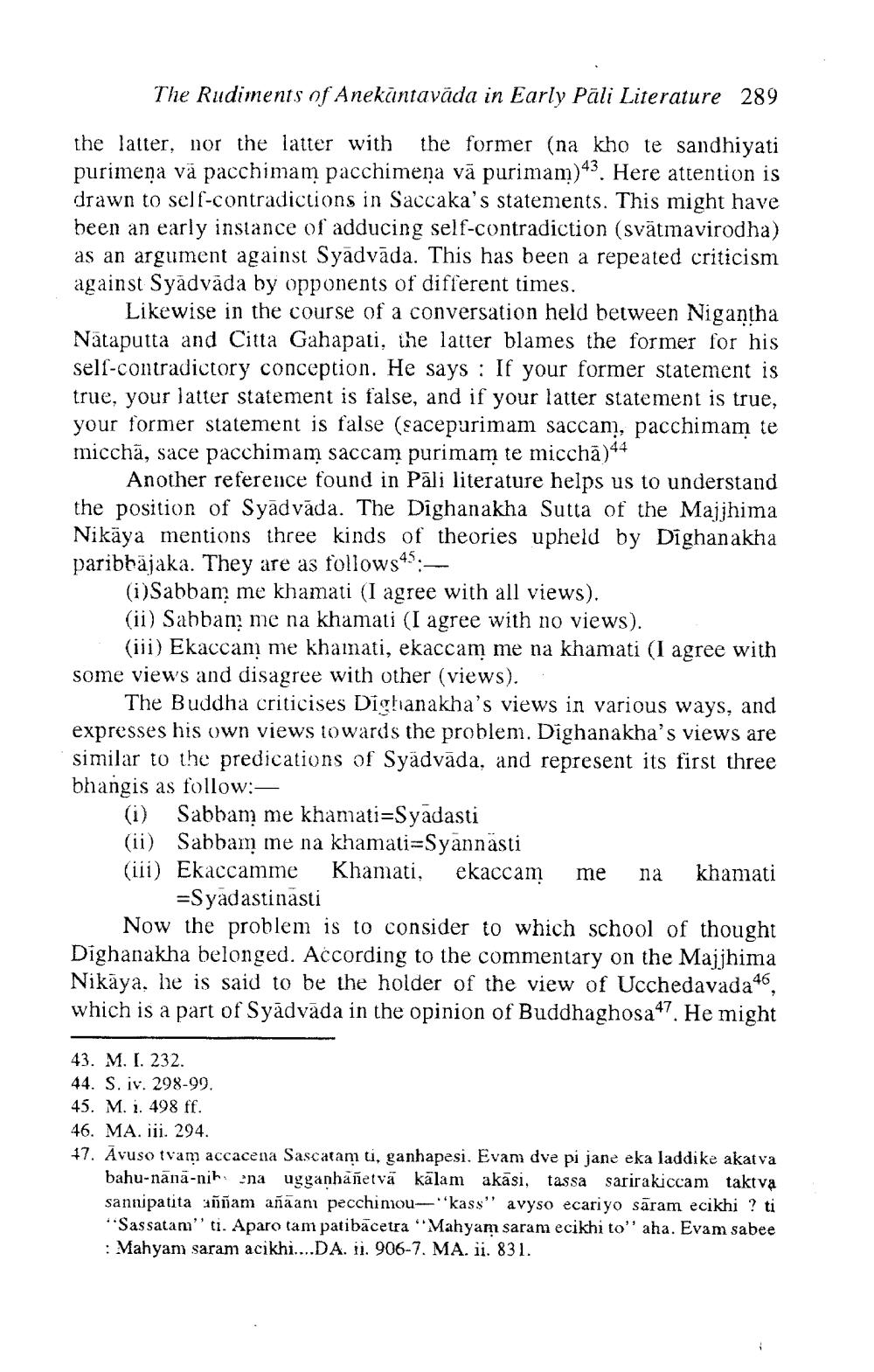________________
The Rudiments of Anekuntavāda in Early Pāli Literature 289
the latter, nor the latter with the former (na kho te sandhiyati purimeņa vā pacchimam pacchimena vā purimam)43. Here attention is drawn to self-contradictions in Saccaka's statements. This might have been an early instance of adducing self-contradiction (svätmavirodha) as an argument against Syadvāda. This has been a repeated criticism against Syadvāda hy opponents of different times.
Likewise in the course of a conversation held between Nigantha Nätaputta and Citta Gahapati, the latter blames the former for his self-contradictory conception. He says : If your former statement is true, vour latter statement is false, and if your latter statement is true. your former statement is false (sacepurimam saccam, pacchimam te micchā, sace pacchimam saccam purimam te micchā)4+
Another reference found in Päli literature helps us to understand the position of Syadvāda. The Dighanakha Sutta of the Majjhima Nikäya mentions three kinds of theories upheld by Dighanakha paribhäjaka. They are as follows45:
(i)Sabbam, me khamati (I agree with all views). (ii) Sabban me na khamati (I agree with no views).
(111) Ekaccam me khamati, ekaccam me na khamati (I agree with some views and disagree with other (views).
The Buddha criticises Dichanakha's views in various ways, and expresses his own views towards the problem. Dighanakha's views are similar to the predications of Syädvāda, and represent its first three bhangis as follow:
(i) Sabbam me khamati=Syadasti (ii) Sabbam me na khamati=Syannästi (iii) Ekaccamme Khamati, ekaccam me na khamati
=Syadastinasti Now the problem is to consider to which school of thought Dighanakha belonged. According to the commentary on the Majjhima Nikāya. he is said to be the holder of the view of Ucchedavadano. which is a part of Syādvāda in the opinion of Buddhaghosa47. He might
43. M. I. 232. 44. S. iv. 298-99. 45. M. i. 498 ff. 46. MA. iii. 294. 17. Avuso tvam accacena Sascatam ti, ganhapesi. Evam dve pi jane eka laddike akat va
bahu-nänä-nih: na ugganhañetvā kālam akāsi, tassa sarirakiccam taktva sannipatita aññam anaan pecchimou- kass" avyso ecariyo saram ecikhi ? ti *Sassatam'' ti. Aparo tam patibācetra Mahyam saram ecikhi to'' aha. Evam sabee : Mahyam saram acikhi....DA. 11. 906-7. MA. ii. 831.




